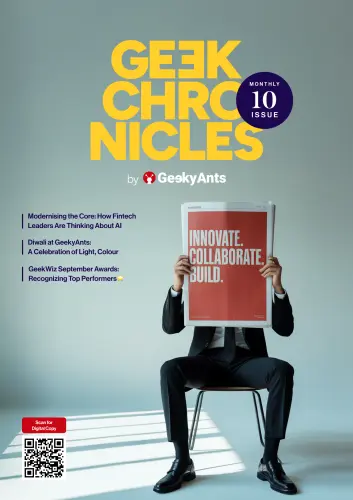Table of Contents
The New Era of Predictive Healthcare with AI
Author

Date

Book a call
The healthcare landscape is undergoing a transformation, propelled by the capabilities of artificial intelligence (AI). Once relegated to science fiction, predictive healthcare is now a reality, redefining how illnesses are prevented, diagnosed, and treated. By leveraging vast datasets, advanced algorithms, and machine learning models, AI is enabling a proactive approach to medicine. This shift promises not just efficiency but also the potential to save millions of lives.
In this blog, we delve into how AI is revolutionizing predictive healthcare, exploring its key applications, benefits, challenges, and the path forward. For tech leaders and business owners in the healthcare ecosystem, understanding these dynamics is crucial for staying ahead in an industry poised for exponential growth.
Transforming Healthcare from Reactive to Predictive
For decades, healthcare systems have operated in a largely reactive model: patients seek medical attention after symptoms manifest. This approach, while effective to some extent, often leads to late diagnoses, higher treatment costs, and poorer outcomes. Predictive healthcare, driven by AI, flips this paradigm by identifying risks before they escalate into illnesses.
Imagine a system that predicts a heart attack weeks in advance or detects cancer at its earliest stages using patient history, genetic data, and lifestyle factors. AI-powered predictive analytics make this possible, fostering a future where prevention is prioritized over treatment.
The Building Blocks of Predictive Healthcare AI
At the heart of predictive healthcare lies a convergence of technologies and methodologies that fuel its capabilities. These components form the backbone of this transformative era:
1. Big Data in Medicine
The influx of data from electronic health records (EHRs), wearable devices, and genomic studies provides AI with a rich foundation to uncover patterns that human analysis might miss. This data is not just voluminous but also diverse, encompassing structured, semi-structured, and unstructured formats.
2. Machine Learning and Neural Networks
Advanced machine learning models, including neural networks, are central to analyzing vast datasets with precision. These systems learn from historical data to make accurate predictions about future health events.
3. Natural Language Processing (NLP)
NLP allows AI to analyze unstructured medical data, such as clinical notes or patient-reported symptoms, adding depth to its predictive accuracy.
4. Cloud Computing and Edge AI
With cloud computing, vast data can be processed and analyzed at scale. Edge AI, meanwhile, facilitates real-time analysis closer to the data source, such as on wearable health devices.
Real-World Applications Redefining Healthcare
Predictive healthcare powered by AI is no longer just a concept; it is actively transforming practices worldwide. From revolutionizing diagnostics to tailoring treatments and optimizing care delivery, AI is reshaping the medical field with unprecedented precision.
Early Disease Detection
AI algorithms are detecting diseases like cancer, diabetes, and Alzheimer's at earlier stages than ever before. Google's DeepMind, for example, developed a model that identifies over 50 eye diseases with human-level accuracy, preventing vision loss in countless patients.
Personalized Medicine
One-size-fits-all treatments are being replaced by AI-driven personalization. By analyzing genetic, lifestyle, and environmental factors, systems like those developed by Tempus recommend therapies tailored to the individual, enhancing outcomes and minimizing side effects.
Remote Patient Monitoring
Smart devices and wearables track health metrics in real time, enabling early interventions. Devices like AliveCor monitors heart rhythms, while Fitbit's AI-powered tools identified early COVID-19 symptoms, showcasing AI's lifesaving potential.
Optimized Clinical Trials
AI is revolutionizing clinical trials by identifying ideal participants and using "digital twins" to predict outcomes. Companies like Pfizer and Unlearn.AI are cutting trial durations and costs, accelerating the development of critical treatments.
These applications demonstrate how AI is moving predictive healthcare from concept to reality, offering timely solutions that save lives and improve the quality of care globally.
The Economic and Operational Benefits for Businesses
Predictive healthcare AI offers transformative cost-saving opportunities by enabling early intervention. It minimizes the financial burden of treating advanced illnesses, reduces unnecessary hospitalizations, and optimizes resource allocation, making healthcare systems more efficient and sustainable.
AI also enhances operational workflows by automating administrative tasks and prioritizing critical cases. This allows healthcare providers to focus on delivering quality care instead of navigating cumbersome bureaucratic processes, significantly improving productivity.
Moreover, AI-driven personalized insights foster stronger patient engagement. Proactive communication and tailored care plans enhance trust and satisfaction, making healthcare not just efficient but also deeply patient-centric. Together, these advancements are redefining how businesses approach healthcare delivery.
Addressing Challenges and Ethical Concerns
While the promises of predictive healthcare are immense, the journey is fraught with challenges. Overcoming these hurdles is essential for sustainable adoption.
1. Data Privacy and Security
Patient data is highly sensitive. Ensuring its confidentiality and preventing breaches require robust encryption protocols and adherence to compliance frameworks like HIPAA and GDPR.
2. Algorithmic Bias
AI systems are only as unbiased as the data they are trained on. If training datasets are skewed, predictions may favor certain demographics, leading to unequal healthcare outcomes.
3. Integration with Legacy Systems
Many healthcare providers rely on outdated IT systems that struggle to integrate with AI solutions. Modernizing these systems is a costly yet necessary step.
4. Trust and Adoption
AI's "black box" nature—where the decision-making process is not always transparent—can deter patients and providers from fully trusting its recommendations.
Future Horizons of Healthcare With AI and What Lies Ahead?
The future of predictive healthcare with AI promises to be transformative as the technology continues to evolve. We are on the brink of AI-powered preventive health ecosystems, where wearables, electronic health records, and AI seamlessly integrate to deliver proactive, holistic care. This shift will redefine prevention as the cornerstone of healthcare.
AI also holds the potential to bridge global healthcare gaps, particularly in underserved regions. With advancements in remote diagnostics and telemedicine, quality care will become more accessible, breaking geographical and economic barriers.
Collaboration will be key in this new era. Tech giants, healthcare providers, and regulators are poised to unite, establishing standards and driving innovation that benefits all. Moreover, the emergence of Explainable AI (XAI) will address trust issues by demystifying AI's decision-making processes, paving the way for widespread acceptance and adoption.
This exciting horizon marks not just an evolution but a revolution.
The Role of Visionaries in Shaping Predictive Healthcare
Shaping the future of predictive healthcare demands forward-thinking strategies and a commitment to innovation. To lead this transformation effectively, consider the following approaches:
- Foster Cross-Disciplinary Collaboration: Bring together technologists, healthcare professionals, and policymakers to design solutions that solve real-world challenges while pushing the boundaries of innovation.
- Build a Data-Driven Culture: Focus on ethical data collection, robust management, and privacy safeguards to unlock the full potential of AI while maintaining trust and compliance.
- Commit to Lifelong Learning: Embrace a mindset of continuous discovery, staying ahead of advancements in AI, healthcare trends, and regulations to drive meaningful progress.
Revolutionizing Healthcare with GeekyAnts App Development Expertise
GeekyAnts is at the forefront of delivering innovative app development solutions that enhance patient care and streamline operations. From building secure Electronic Health Record (EHR) and Electronic Medical Record (EMR) systems to creating intuitive telemedicine platforms, clinic management tools, and patient portals, we empower healthcare providers to offer seamless and efficient services.
Our applications are designed with a strong focus on compliance, adhering to industry standards such as HIPAA to ensure the highest levels of data security and confidentiality. By integrating advanced technologies, we help organizations reduce costs, improve communication between caregivers and patients, and support data-driven decision-making for better outcomes.
With over six years of expertise in the healthcare domain and a dedicated team of specialists, GeekyAnts is committed to driving excellence and innovation, ensuring our partners are equipped to thrive in a technology-driven healthcare landscape.
Conclusion
The transformative power of AI in predictive healthcare is undeniable, marking a pivotal shift from reactive to proactive care. By harnessing advanced technologies like machine learning, NLP, and cloud computing, healthcare systems can now predict, personalize, and optimize like never before. This revolution is not just about technological progress but about saving lives, enhancing patient experiences, and reshaping healthcare delivery for the better.
However, with innovation comes responsibility. Challenges such as data privacy, algorithmic bias, and legacy system integration must be addressed to ensure ethical and equitable adoption. Visionary leadership, cross-disciplinary collaboration, and a commitment to lifelong learning will be key to navigating these complexities and driving meaningful change.
A key player in this shift is GeekyAnts, we offer creative, specially designed healthcare app solutions that meet the constantly evolving needs of patients and healthcare professionals. As we look to the future, one thing is clear: the new era of predictive healthcare is here, and the opportunities it brings are boundless. By embracing this revolution, we can create a smarter, more connected, and compassionate healthcare ecosystem for generations to come.
Dive deep into our research and insights. In our articles and blogs, we explore topics on design, how it relates to development, and impact of various trends to businesses.





